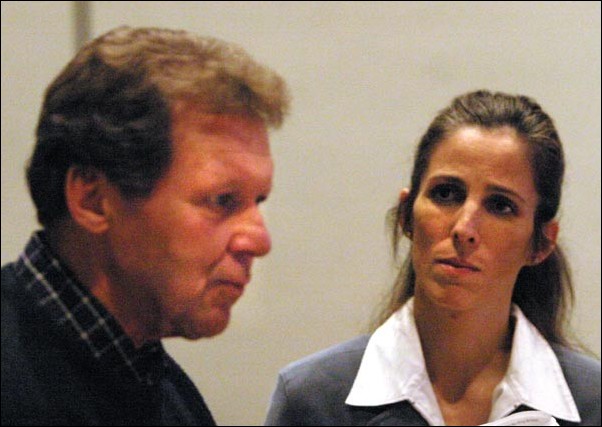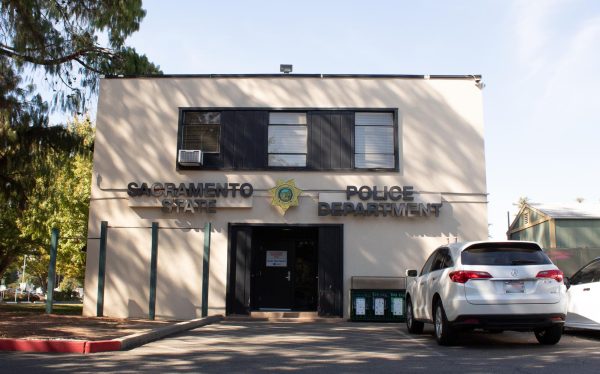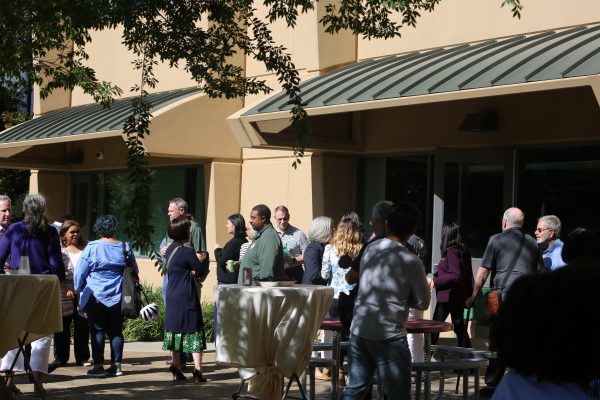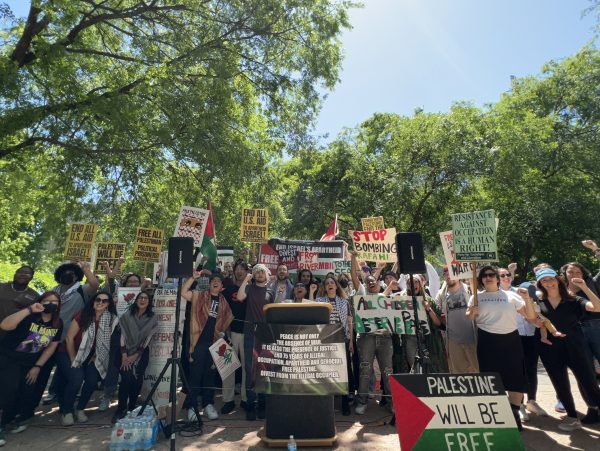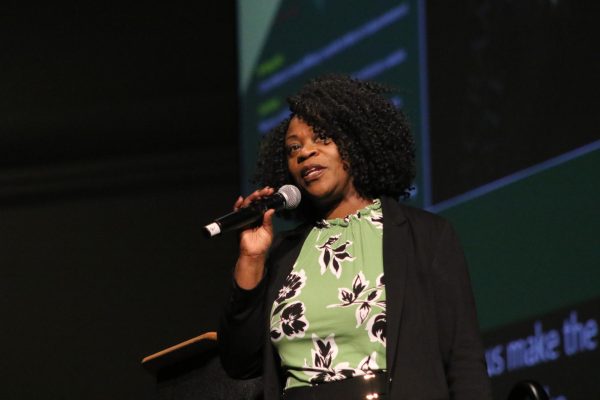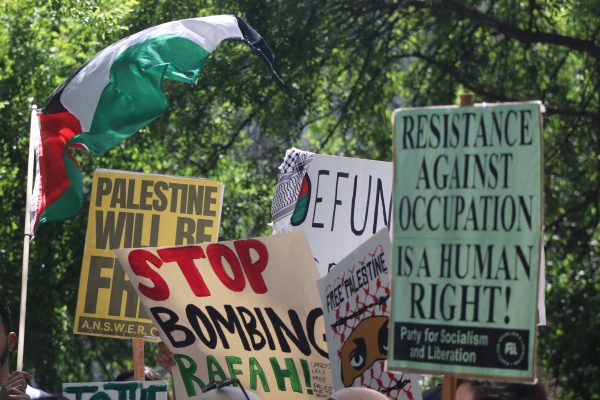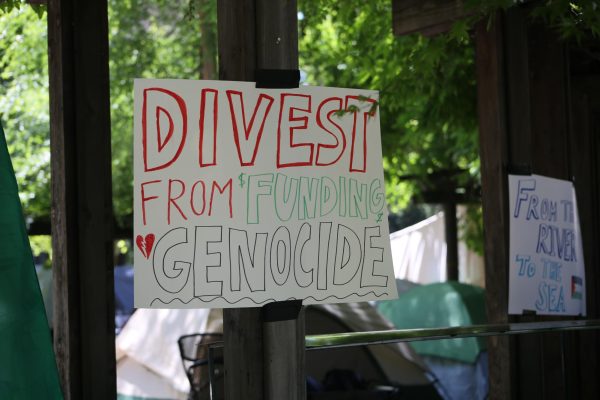Speakers shed light on school for ‘militiamen’
Image: Speakers shed light on school for ‘militiamen’:The Rev. Roy Bourgeois, a human rights activist, and democratic congressional candidate Julie Padilla speak to students about a school they say gives training to dictators. Andrew Nixon/State Hornet:
March 7, 2005
Democratic congressional candidate Julie Padilla joined the Rev. Roy Bourgeois, founder of School of the Americas Watch, and Leisa Faulkner Barnes, a Sacramento State graduate student, in informing students about a school now called the Western Hemisphere Institute for Security Cooperation.
The speakers said that the school is known for training Latin American militiamen and dictators like Manuel Noriega.
Padilla, who holds a degree in Latin American Studies, announced at the event that, should she be elected, she would support legislation introduced by James McGovern, D-Mass., asking congress to close the school.
The school is located in Fort Benning, Ga., and according to its Web site, its purpose is to provide “professional education and training for civilian, military and law enforcement students from nations throughout the Western Hemisphere.”
Bourgeois has devoted his life to trying to have the school closed down because, he said, the students often go home to become terrorists or dictators in their own countries.
Bourgeois founded the School of the Americas Watch, an activist group that has been working to shut down the school since 1990 by informing Congress and the media about how the school operates.
The event was Padilla’s third visit to the Sac State campus during her campaign for the congressional seat made available by the death of Rep. Robert Matsui.
Padilla said the issue is important to her because “countries with the worst human rights violations are the countries who send people to be trained at the school.”
A training manual from the school, released by the Pentagon in 1996, recommended blackmail, execution, kidnapping and torture as interrogation techniques — techniques that violate basic human rights and the Army’s rules of procedure.
The school’s Web site says that human rights became an important part of the curriculum when-Congress closed the school for restructuring and a name change in 2001.
“(The school) fulfills the congressionally-mandated mission of promoting understanding and respect for democratic values and institutions, human rights, the rule of law and civilian control of a nation’s armed forces,” the school’s Web site said.
Bourgeois said the only change has been the name.- He said the congressional mandate did not change the way business is conducted at the school and that his goal is to have the school permanently closed.
Each year thousands of protestors gather in front of the school to raise awareness about the injustices brought about by graduates of the school, Bourgeois said. He has served four years in federal prison for civil disobedience at such protests.
Barnes served four months of her own at a federal prison in Dublin, Calif., last year. Her crime was civil disobedience in the form of stepping over the white line that divides public property and government property in front of the school.
She told students about her experience and how it has led her to participate in other humanitarian efforts.
Professor Paul Burke, co-chairman of the Sacramento chapter of the Progressive Democrats of America and a member of Faculty For Peace and Justice, said he had his classes attend the event because civil disobedience is part of being a United States citizen.
Another student, Brian Teding, said, “In a country like this it’s hard to believe that something like this goes on.”
Not all students attending the event thought that closing the school was an important measure.
“I think for the most part it’s wrong, but we do need people who are trained to be out there to protect America in cases of war and terrorism,” Brenda Cerda, a Sac State student, said.

























































































































